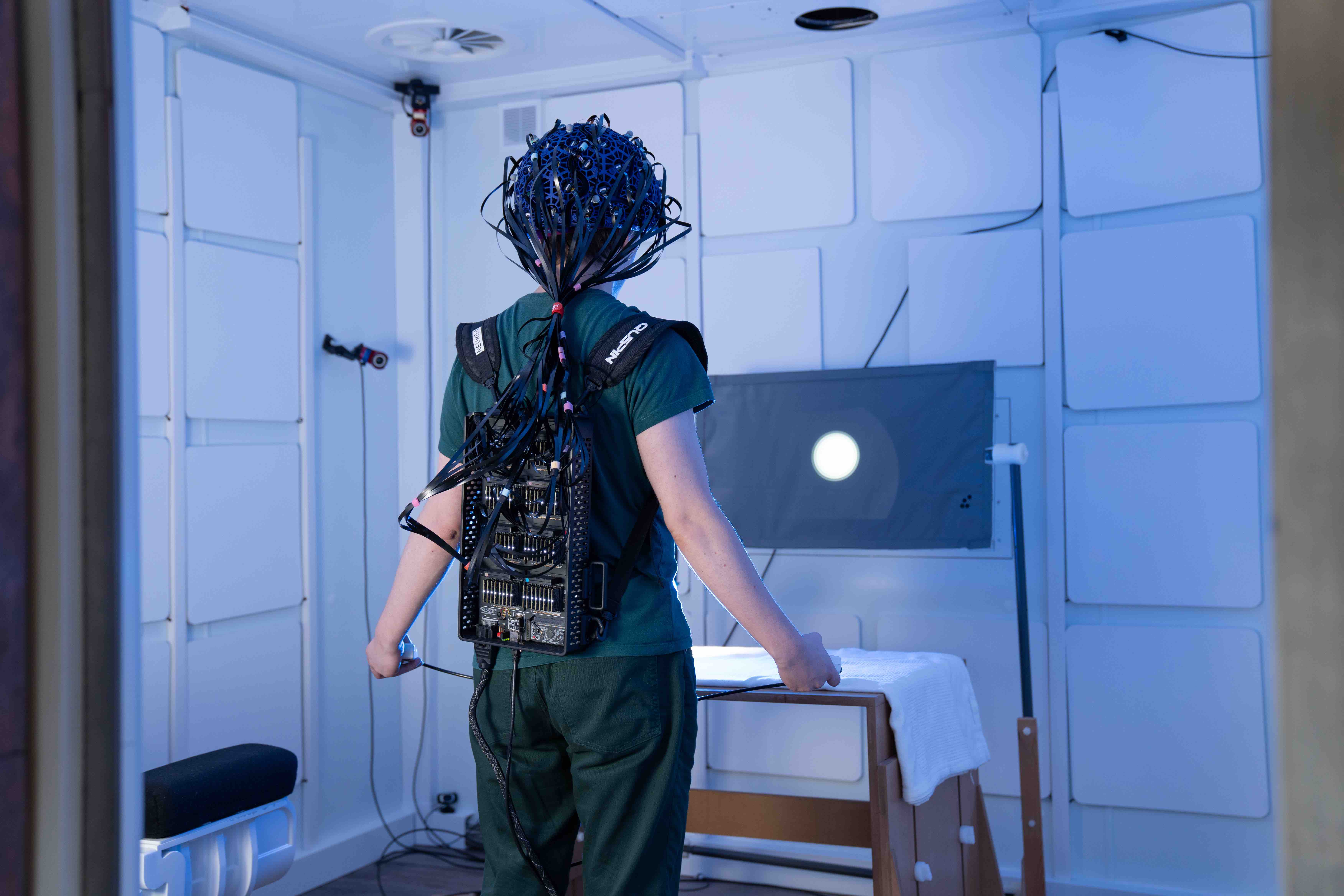A new centre to create the next generation of neurotechnology devices to help diagnose, manage and treat a range of brain health conditions has been launched by scientists at the University of Nottingham.
The Centre for Neurotechnology, Neuromodulation and Neurotherapeutics (N3) brings together scientists, engineers, clinicians and people with lived experience of brain health conditions to develop devices and technology to help diagnose and treat a range of conditions, underpinned by ground-breaking research.
Neurotechnology offers an effective and non-invasive way to effectively diagnose and treat a range of conditions, ranging from Tourette's and Parkinson's disease, to dementia, depression and psychosis. It encompasses a wide range of technologies that can directly interact with the nervous system to either modulate its activity (neuromodulation) or to interface with the brain.
The Centre builds on the University of Nottingham's world-renowned expertise in brain imaging research. Expertise in computational and mathematical modelling of brain mechanisms and clinical strengths in research and treatment of brain health conditions will help N3 drive research across a range of areas including: understanding neural mechanisms using state-of- the art brain imaging technology, developing novel forms of neurotechnology and driving innovation to take the neurotechnology from the lab to patients.
Scientists at the University are already achieving success in this area with new neurotechnology devices and techniques developed.

A ground-breaking wrist device to help control tics in people with Tourette's is currently in development, after scientists demonstrated that delivering repetitive trains of electrical stimulation to the median nerve (MNS) at the wrist in order to entrain rhythmic electrical brain activity - known as brain oscillations – reduces the amount and severity of tics in people with Tourette syndrome. This electrical wrist stimulation approach is now being trialled in people with Parkinson's in a 2-year study funded by Parkinson's UK.
N3 centre scientists have recently been awarded a 5-year MRC programme grant to develop a novel closed-loop neuromodulation approach to treating serious mental health disorders such as major depression, psychosis, and movement disorders such as Tourette syndrome. A key aspect of this research programme will be to develop non-invasive alternatives to deep brain stimulation based upon low-intensity ultrasound stimulation.

The development and roll out of a wearable OPM-MEG brain imaging system is also transforming our understanding of the developing brain. The wearable brain scanner is based on quantum technology and uses LEGO-brick-sized sensors – called optically pumped magnetometers (OPMs) – which are incorporated into a lightweight helmet to measure the magnetic fields generated by brain activity. This unique design means the system can be adapted to fit any age group, including very young children.
This technology is being used to research a range of neurological disorders including dementia, epilepsy and autism.
The University of Nottingham (UoN) is well positioned to establish this Centre, as the birthplace of MRI and with the arrival of the UK's most powerful Magnetic Resonance Imaging (MRI) scanner set to be installed at the Sir Peter Mansfield Imaging Centre next year. The University's research, funded by UKRI, NIHR, and charitable sources, is linked to UK-wide research networks such as the EPSRC/MRC-funded Neuromod+ network, and UoN neurotechnology spinouts such as Cerca Magnetics and Neurotherapeutics Ltd.
Innovation in healthcare for brain health conditions sorely needed in order to widen access to safe and effective treatments. There is a wealth of expertise and enthusiasm at the University of Nottingham to support research in this area, and we are looking forward to accelerating our understanding of brain disorders and the development of much-needed technology-led treatments. By sharing our knowledge, we will be well placed to lead the mission to transform neurotechnology in the UK and ultimately improve the lives of people living with a range of brain disorders.






